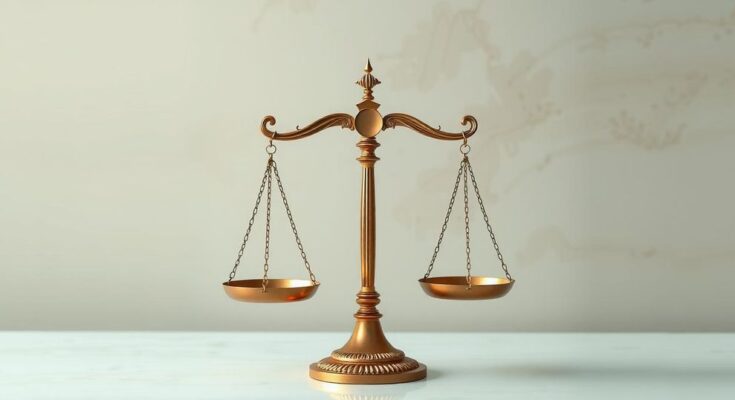Türkiye’s Human Rights Landscape: A Comprehensive Overview
In Türkiye, President Recep Tayyip Erdoğan and his AKP-led government maintain a firm grip on the media and judiciary, often sidelining critics. Discontent grows as political rifts and reported state corruption erode human rights and the rule of law. The European Court of Human Rights’ judgments are frequently ignored, perpetuating serious violations amidst rising inflation rates, which hit 47% in late 2024.
Political Shifts and Opposition Gains
The March local elections marked a significant moment for Türkiye’s opposition, with the CHP capturing 37.8% of votes compared to the AKP’s 35%. This victory included maintaining control over major cities like Istanbul and Ankara, indicating a shift in public sentiment against Erdoğan’s government, and highlighting growing dissent amidst economic challenges.
Freedom of Expression Under Siege
Government dominance extends to TRT and Anadolu Ajansı, with independent media largely restricted to online platforms. Authorities routinely block websites or remove content critical of the government, claiming national security threats, thereby stifling freedom of expression. Recent Constitutional Court decisions deemed certain censorship laws violations, yet thousands of sites remain inaccessible, with over one million blocked since 2007.
Press Freedom and Journalist Prosecutions
Journalists face criminal prosecution, particularly under anti-terror laws. Kurdish reporters are disproportionately affected, with several receiving lengthy prison sentences for alleged terrorist affiliations. As of now, at least 21 journalists remain imprisoned for their work, revealing a troubling landscape for press freedom in Türkiye.
Restrictions on Assembly and Association
Detained individuals, often accused of links to the Gülen movement, face harsh sentences and unfair trials. Despite a ruling from the ECtHR about the arbitrary nature of such convictions, the Turkish authorities have not complied. Protests are routinely banned, with demonstrators facing violent crackdowns, particularly from leftist or Kurdish groups.
Persecution of Human Rights Defenders
Human rights activists, including Osman Kavala, continue to be imprisoned on vague charges, reflecting Türkiye’s disregard for ECtHR mandates. In January 2024, human rights lawyer Can Atalay was unjustly stripped of his parliamentary seat, raising concerns over judicial integrity amid government interventions.
Torture Allegations and Prisons
Allegations of torture and ill-treatment in custody have surged since the 2016 coup attempt, with the UN Committee against Torture expressing concerns about the treatment of detainees. Recommendations call for halting abusive practices and abolishing penalties that effectively create solitary confinement for life sentences.
Military Actions and the Kurdish Conflict
Türkiye’s military actions against the PKK have intensified, impacting civilians in northern Iraq and Syria. Many face arbitrary arrests and land dispossession amid ongoing conflict, even as Kurdish political figures remain imprisoned for their activism against the government’s policies, casting a shadow over Türkiye’s commitment to human rights.
Refugee and Migrant Policies
Standing as the world’s leading refugee host, Türkiye holds 2.9 million Syrians with temporary protection. However, irregular migrants face strict deportation practices and increased xenophobic violence, evidenced by assaults on refugees amidst rising hostility exploited by political rhetoric.
Gender-Based Violence and Women’s Rights
Following Türkiye’s withdrawal from the Istanbul Convention, gender-based violence rates remain alarmingly high. Reports indicate at least 166 women were killed by men in early 2024, underscoring the urgent need for protective measures against violence.
LGBTQ+ Rights and Societal Challenges
The Turkish government’s discriminatory rhetoric against LGBTQ+ communities fuels societal animosity, with Pride celebrations continuously banned. This ongoing suppression highlights the vulnerability of sexual and gender minorities amid an increasingly hostile environment for non-conforming identities.
Climate Change and Policy Gaps
Despite affirming international climate agreements, Türkiye’s commitment appears tenuous with plans to expand coal operations. Without a robust strategy for transitioning to renewable energy, achieving carbon neutrality by 2053 seems uncertain, underlining a disconnect between policy and practice in addressing the climate crisis.
Türkiye under Erdoğan’s rule faces serious human rights challenges, including press censorship, persecution of critics, increased poverty with 47% inflation, and rising violence against women and refugees. Opposition strength grew in local elections, yet violations persist against Kurdish journalists and activists, revealing a critical need for reforms and adherence to international human rights standards.
The intricate landscape of human rights in Türkiye reveals a system under strain from governmental control and societal unrest. From media oppression to the plight of refugees and marginalized communities, the situation necessitates urgent attention. As discontent rises, particularly in response to economic challenges, the possible shifts in public sentiment could influence the future trajectory of Türkiye’s democracy and human rights respect.
Original Source: www.hrw.org



